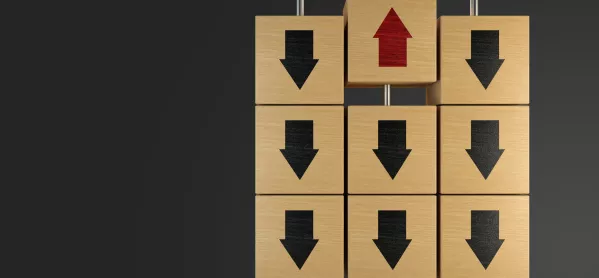The proportion of pupils who sat the Scottish government’s controversial national tests in literacy and numeracy dropped last year - with roughly one in 10 pupils in Primary 1 not undertaking the assessments.
Last year, 93.4 per cent of pupils in the targeted year groups - P1, P4, P7 and S3 - sat the Scottish National Standardised Assessments (SNSAs), down from 95 per cent the previous year, when the tests were introduced.
Most of the drop in uptake - according to the national report for 2018-19, published by the Scottish government last week - was accounted for by a decrease in P1 pupils sitting the tests.
Campaign: Scrap ‘cruel’ testing of five-year-olds
P1 practitioner forum: Teachers were given ‘little or no’ information on P1 tests
Review: ‘Scant evidence’ of children being upset by P1 tests
News: Scottish families urged to pull pupils out of tests
P1 is the age group for which the introduction of the SNSAs has been most hotly disputed.
In the first year that the tests ran (2017-18), 96 per cent of P1 pupils sat the numeracy test and 95 per cent sat the literacy test. However, last year - 2018-19 - those figures dropped to 91 per cent of P1 pupils sitting both the literacy and numeracy tests.
Opposition to P1 tests
The P1 tests have been controversial because early years experts argue that no meaningful data can be gleaned from children at this age and stage.
Teachers also complained that five-year-olds lacked the IT skills to successfully navigate the online assessments and said that the tests were too long and pitched at the wrong level, resulting in some children becoming distressed.
The Play Not Tests campaign, launched in 2018, encouraged parents to opt their children out of the tests and the same year the Scottish Parliament voted to halt the P1 assessments.
The Scottish government, however, refused and instead commissioned an independent review of the assessments, which was published in June 2019. It advised that they should continue, but that teachers needed more support to implement the tests and that the P1 literacy assessment should be scaled back.
As of next year, therefore, the P1 literacy assessment will be shorter.
However, a further drop in the proportion of P1 pupils sitting the assessments can be expected this year as Fife Council voted to scrap the P1 assessments in December 2018 - a move that will be reflected in figures feeding into 2019-20 report, which will be published around this time next year.
A Scottish government spokeswoman said 95 per cent of P1 pupils who took part in the tests in 2018-19 said they enjoyed them.
She added: “The report demonstrates that the vast majority of schools continue to use and value the assessments at all stages. Teachers have discretion not to present children and young people for the assessments when they consider that is not in their best interests, for example those with complex or multiple additional support needs.”





